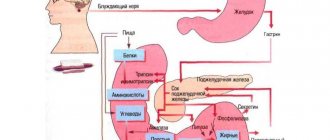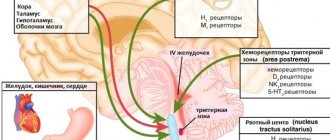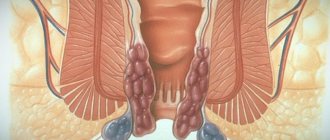Mechanism of nausea
The human body is a rather complex system, the slightest disturbance in which manifests itself in a wide variety of symptoms. Among them are nausea and vomiting in the morning. Regardless of the causes of the pathology, these symptoms cause discomfort to the patient and worsen his well-being.
Vomiting in the morning can indicate the development of various diseases. Moreover, the frequency of this reflex is directly dependent on the factors that cause it, the age and gender of the patient, as well as the individual characteristics of his body.
Most often, vomiting in the morning is observed in children. Slightly less common in women. In men, such a symptom occurs very rarely.
However, vomiting is not a pathology at all. It is a complex defense mechanism that unconsciously works in a person at a reflex level. Outwardly, such a process is nothing more than an uncontrolled release of stomach contents in most cases through the oral cavity, and sometimes through the nasal passages. The formation of the gag reflex occurs due to the influence of peripheral or central stimuli on a special center called the gag center. It is located in the brain. It is from here that the muscular tissues of the organs receive commands and impulses. Their performers are the diaphragm of the stomach and the abdominal press. As a result, muscle contraction occurs. This process helps to expand the esophagus and open the entrance to the stomach. The contents of this organ are pushed out, which is why vomiting occurs.
https://youtu.be/zmKw5RUZoRU
Diagnostics
If nausea and vomiting does not go away for a long time, you should consult a gastroenterologist. Additionally, you may need to consult a nephrologist, urologist/gynecologist.
First of all, a physical examination of the patient is carried out with the collection of a personal (in some cases, family) history and clarification of the most complete clinical picture.
To establish the root cause factor, laboratory and instrumental diagnostic measures are used:
- blood sampling for general and biochemical analysis;
- general analysis of urine and feces;
- analysis of vomit;
- endoscopic examination of the stomach;
- Ultrasound of the esophagus;
- Ultrasound of the abdominal organs;
- Ultrasound of the genitourinary system.
It should be noted that this is only an approximate diagnostic program - the necessary tests and procedures are prescribed by the doctor, based on the data collected during the initial examination. Based on the results of the study, the cause of nausea is determined and appropriate treatment is prescribed.
Possible reasons
Why does vomiting in the morning bother people? Anyone who has encountered such ailment only once should not worry. The only serious symptom is regular morning nausea and vomiting. Often such a reflex indicates the development of the disease. This is why you should not run to the pharmacy for anti-nausea pills. Such a measure will be far from complete. It is possible to get rid of an unpleasant symptom by eliminating the very cause of the ailment. Only a doctor can advise how to do this.
There are several reasons why this physiological condition occurs. All of them are combined into groups that relate to:
- physical changes;
- hormonal imbalances;
- development (presence) of diseases.
Thus, vomiting spasms are often observed in pregnant women. Moreover, they can bother the expectant mother not only during a certain period of gestation, but also throughout all three trimesters.
Folk remedies for nausea in the morning
To eliminate the discomfort that occurs on an empty stomach, use ginger root. Tea made from this spice is considered one of the best remedies for nausea.
Lemon copes well with morning sickness. It is recommended for use even by children and pregnant women. To prepare a drink against nausea, just cut one half of the citrus into small pieces along with the peel and add boiled water. This remedy should be taken in small sips.
Determining causes based on characteristic signs
Constant malaise and vomiting in the morning require detailed study. This will allow us to find out the reasons for this condition.
It is worth noting that nausea and vomiting are the main symptoms that are taken into account by specialists in the process of diagnosing pathology. The following factors create the conditions for such a physiological state:
- Malfunctions of the central nervous system. The cause of this condition may be complications that arise after the patient has suffered certain infectious diseases (encephalitis, meningitis) or injuries (burns, concussions). Many people are familiar with the condition of migraine. This pathology, which causes unbearable headaches, is usually accompanied by morning sickness. It does not go away even after vomiting. Sleep and painkillers will help the patient cope with this problem. Another dangerous disease included in this group is cerebral stroke. It develops in the early morning and is accompanied by nausea and vomiting. In addition to these signs of such a formidable illness, the patient complains of dizziness and changes in blood pressure can be observed. In addition, a number of other specific symptoms arise, which depend on the location of the ischemic lesions. So, a person exhibits facial asymmetry, the tongue deviates to the side, the strength in the arm decreases, or he cannot lift one of his legs. The emergence of a walking clinic requires urgent medical attention. Disruptions in the functioning of the central nervous system also occur after traumatic brain injuries, provoking the occurrence of microdamages in the structure of the brain substance. This causes changes in the functioning of the vestibular apparatus, which is reflected in unsteadiness of gait, as well as nausea and vomiting, which does not bring relief. Such changes begin in the morning hours the next day after the injury. Making a correct diagnosis is possible after examining the patient by a traumatologist and neurosurgeon.
- Toxic effects. Nausea and vomiting in the morning occur due to existing renal or liver failure, drug or food poisoning, aggressive effects of chemical poisons, as well as benign or malignant neoplasms. The most common oncological diseases that are accompanied by such symptoms are stomach cancer (in this case, in addition to nausea, there is also an aversion to meat products, as well as a significant decrease in the patient’s weight), liver and gall bladder cancer (with this pathology, a dull pain occurs in the area right hypochondrium), pancreatic acenocarcinoma (characterized by the rapid development of wasting), dymphoma and leukemia. Vomiting in the morning often occurs due to intoxication of the body with products formed due to tumor growth. Very often, such a symptom is a complication of chemotherapy. An oncologist is responsible for diagnosing and prescribing a course of treatment when malignant tumors occur.
- Pathologies of the gastrointestinal tract. Vomiting in the morning on an empty stomach often occurs with gastritis or stomach ulcers. In this case, nausea is accompanied by hunger pain. Does not help improve your condition and food intake. After eating, nausea begins to worsen, and a feeling of fullness occurs in the stomach. Pancreatitis also manifests itself as morning sickness. Simultaneously with this phenomenon, the person feels pain in the right side of the abdomen. The condition worsens after eating spicy, fried and fatty foods.
To diagnose the causes of morning sickness in a patient, specialists pay attention to the format of the vomit, whether it contains fragments of food, particles of blood or bile. The question of the presence of odor or taste in the mouth is also clarified.
Diseases that cause nausea
Nausea, whether associated or not associated with food intake, is perhaps the leading, but not the only sign of many diseases. Combination with other symptoms helps to understand the situation and decide on further tactics.
Among diseases of the digestive tract, nausea on an empty stomach is accompanied by esophagitis, duodenitis, gastritis, pancreatitis, cholecystitis, biliary dyskinesia, etc.
Esophagitis
This is an inflammatory process that is localized in the esophageal tube. Nausea can occur before eating, sometimes after eating. However, with this disease, a person, as a rule, also complains of heartburn, a feeling of a lump behind the sternum. All these symptoms do not disappear after eating; on the contrary, they may intensify after filling the stomach with food.
Duodenitis
This is an inflammatory process that affects the duodenum. The causes of this disease are not fully understood; it is assumed that genetic predisposition, nervous tension, irregular and unbalanced nutrition lead to the development of duodenitis. Nausea on an empty stomach is the main complaint of such patients, which disappears on its own after taking a small amount of food. The patient may experience pain in the upper abdomen, which also goes away after eating.
Gastritis
Inflammation of the stomach is one of the most common diseases of modern man. A person is bothered by nausea, pain and a feeling of heaviness in the stomach, and sometimes vomiting. As a rule, this is associated with eating certain foods (excessively spicy, salty, sour). Gastritis can precede the development of much more serious diseases, such as ulcerative lesions of the stomach and duodenum. In this case, in addition to this symptom, a more pronounced pain syndrome appears, which is localized in the epigastric region.
Pancreatitis
A fairly dangerous condition for human life caused by inflammation of the pancreas. At the initial stage, nausea is observed, sometimes ending in painful, repeated vomiting. However, the main symptom of this disease is the appearance of pronounced girdle pain in the upper abdomen.
Cholecystitis
This is an inflammation of the gallbladder tissue or an exacerbation of cholelithiasis associated with blockage of the bile duct with stones. It manifests itself as nausea, then vomiting mixed with bile. The main symptom of cholecystitis is severe pain in the right hypochondrium. It must be remembered that the disease can be provoked by eating fatty, fried foods.
Biliary dyskinesia
A common pathology, typical more in childhood or young age. The disease is associated with impaired motility of the gallbladder and, as a result, impaired outflow of bile. Nausea with dyskinesia is combined with belching, bitterness in the mouth and dull pain in the abdomen on the right.
Vomiting bile
A similar phenomenon in the morning is accompanied by the release of a yellow-green mass with a bitter taste. Vomit, which contains an admixture of bile, has a rather characteristic taste. When it appears, we can talk about problems in the functioning of the pancreas, bile ducts, and liver. Vomiting with bitterness can also occur due to:
- intestinal obstruction of various etiologies;
- problems with the operation of the valve separating the stomach and intestines;
- pathologies of the genital organs, urinary tract and liver;
- diseases of the gastrointestinal tract, including pancreatitis, ulcers, gastritis, etc.;
- disruptions in the functioning of the central nervous system (shock, injuries and diseases).
Vomiting of bile also occurs with appendicitis. In addition to this symptom, the patient feels pain in the iliac region. How to check whether appendicitis is the cause of morning sickness or not? It is worth keeping in mind that vomiting in this pathology is not the main symptom on the basis of which a diagnosis of the disease is possible. In addition to this unpleasant phenomenon, in the presence of inflammatory processes, severe abdominal pain appears. They appear suddenly or increase gradually. As a rule, they are a stabbing sensation, which is quite difficult to tolerate. That is why a person strives to lie down in such a way that the adopted position will reduce suffering. It is very dangerous if the pain goes away on its own. This may indicate the beginning of the process of death of nerve endings.
How to check whether appendicitis is the cause of the illness or not? The following signs can confirm such a diagnosis:
- loss of appetite;
- fever and chills;
- increased heart rate up to 90-100 beats per minute;
- the appearance of a white coating on the surface of the tongue.
Another sign of appendicitis is discomfort in the navel area that occurs when trying to cough, as well as an unbearable spasm that occurs when palpating the abdomen in its lower right part. The occurrence of such symptoms indicates an acute pathology, which requires immediate consultation with a doctor for surgical care.
Toxic poisoning can also provoke vomiting with bile. A similar phenomenon can also be observed in cases where previously active measures were taken to cleanse the body of toxins.
Nausea attacks at night
Some people feel quite healthy during the day, but at night they feel sick, but not from pregnancy. What reasons can provoke such an attack? During sleep, we are in the same position for a long time, the work of all organs slows down at this time, discomfort, if any, begins to accumulate, and you wake up with a strong feeling of nausea.
This is only possible in the case of pathological changes, so your body gives you a signal that it’s time to pay attention to your health.
Problems with the thyroid gland can also disturb you at night, not to mention diseases of the cardiovascular system, for example, hypertension or vegetative-vascular dystonia.
Do not leave such conditions unattended; any disease is easier to treat at the initial stage!
When nausea occurs, the reasons, if not pregnant, can be different. But no matter what they are, I really want to get rid of this condition as soon as possible! Here's what doctors recommend:
- Try to eat a little, food will stabilize the frequency of contractions of the stomach walls and the condition may improve.
- Drink a sweet drink, but do not drink too hot or cold liquid, or milk. It provokes the fermentation process.
- Take an antiemetic drug.
- Breathe frequently and deeply, especially if the attack is caused by stress.
- If this condition is caused by taking medications, then you need to choose another drug.
- Try applying a compress with lavender, chamomile or clove oil to your stomach. It will calm your stomach and the nausea will subside.
- During such an exacerbation, do not eat fatty foods. Try to drink more fluids, eat often, but in small portions.
Even if you managed to cope with an attack of dizziness and dizziness, you still should not put off visiting a doctor. You need to determine the cause of your problem in order to fix it.
Morning vomiting accompanied by diarrhea
When a whole complex of symptoms manifests itself, the body will be affected in a more complex way. This is also observed with vomiting, which occurs simultaneously with diarrhea. In relatively healthy people, this phenomenon occurs infrequently and can be explained quite simply. The fact is that some foods are not absorbed very well by the body. This especially often happens against the background of overeating, when combining food with alcohol, and also when taking it immediately before a night's rest.
A complex combination of symptoms is also observed during the development of certain diseases. And this can be not only vomiting with diarrhea, but also abdominal pain. Most often, nausea with diarrhea occurs with:
- Infectious diseases. Among them are bronchitis, pneumonia, tonsillitis, ARVI. Morning sickness, vomiting, diarrhea and acute pain in the abdomen are caused by intestinal infections provoked by pathogenic microorganisms that enter the gastrointestinal tract with stale food or dirty hands. Reproducing bacteria release toxic substances during their life processes. Pathologies of the urinary system can also cause morning sickness with diarrhea. Thus, with infectious kidney diseases, intoxication develops, which causes an increase in body temperature. In addition to morning vomiting and diarrhea, ailments of the urinary system are also accompanied by swelling of the face, which can be observed after sleep. If such symptoms occur, you will need to consult a therapist. With an accurate diagnosis, antibiotics and sorbents will help get rid of the disease.
- Malfunctions of the digestive organs, namely the gallbladder, pancreas, kidneys and liver.
- Experienced chemical and food poisoning.
- Reactions of the central nervous system to brain injury, as well as stress.
- Side effects of medications taken by the patient.
- Toxic effects.
Identification by a doctor of a specific factor that provokes morning sickness and diarrhea will help identify the cause that affects the body in a similar way.
Symptoms
The additional clinical picture will depend on what exactly caused the nausea.
With a gastroenterological etiological factor, nausea on an empty stomach will be accompanied by the following symptoms:
- heartburn;
- belching with an unpleasant odor;
- vomiting, most often after eating;
- pain in the abdomen or chest area, which will only intensify after physical activity;
- increased salivation;
- sour taste in the mouth;
- dyspnea;
- temperature increase;
- deterioration of appetite or its complete absence;
- rumbling in the stomach;
- increased flatulence;
- bouts of diarrhea;
- bitter belching mixed with bile;
- yellowness of the skin;
- low-grade body temperature in some cases;
- weight loss.
It should be noted that in some cases the symptoms become less intense after eating and go away almost completely if the person eats or drinks something.
In some diseases, vomiting and diarrhea can be quite intense, which can lead to dehydration, which can lead not only to complications, but also to death. It is strongly not recommended to carry out treatment on your own and ignore the signs of hunger and nausea - this can lead to extremely negative consequences.
We should not exclude those cases where nausea from hunger is present as a result of long-term adherence to a certain strict diet. In this case, additional symptoms may manifest themselves as follows:
- headache and dizziness;
- weakness, malaise;
- pale skin;
- decreased performance, irritability;
- vomiting - more often in the morning or after eating food that is not included in the daily diet;
- violation of the act of defecation.
Vomiting immediately after waking up
Nausea on an empty stomach can be the cause of one of many pathological changes in the body.
Among them:
- Hypertension. Vomiting under pressure is accompanied by dizziness, weakness, redness of the face, headaches, fatigue and swelling. In people over 40 years of age, hypertension is a common cause of morning sickness. This disease is complicated by a crisis. This is an attack during which the pressure rises to 200/110 millimeters Hg. Art.
- Hypotension. Vomiting occurs in the morning and when low blood pressure has reached its critical level (50 mm Hg or less). This condition is accompanied by dizziness, darkening of the eyes, fainting, sudden attacks of weakness and a feeling of lack of air. To eliminate vomiting, you will need to see a therapist, who will identify its causes. And a specialist will prescribe treatment for low blood pressure based on the degree of development of the disease and the individual characteristics of the patient’s body.
- Myocardial infarction. We can talk about this disease when, during morning sickness, pain also occurs in the left side of the chest, which radiates to the left arm. In addition to nausea, the gastralgic form of heart attack is also accompanied by pain in the left and right hypochondrium, as well as diarrhea. The appearance of such symptoms requires calling an ambulance. When specialists arrive at the patient, they will perform electrocardiography, which will help determine the condition of the heart muscle.
- Pregnancy. This factor is among the main causes of morning sickness in women carrying a child. The most worrying thing for expectant mothers is the nausea in the first trimester, and it is often accompanied by heartburn.
- Pathologies of the gastrointestinal tract. Such diseases are indicated by morning sickness, which occurs before eating or drinking. Along the way, this phenomenon is accompanied by pain in the abdominal area.
- Alcohol, chemical or food poisoning.
Mechanism of symptom occurrence
Nausea is a rather unpleasant, painful sensation in the throat, upper abdomen, behind the sternum, and in the mouth. It can occur as an independent symptom, but most often appears with other signs of disease.
Nausea is often a precursor to vomiting, especially if accompanied by rapid breathing and increased salivation.
Sometimes mild nausea on an empty stomach is a completely natural phenomenon, signaling an increasing feeling of hunger. But if such a symptom appears repeatedly, this is already an alarming signal, indicating a malfunction in the body and suggesting treatment.
Vomiting with mucus
There may be a certain irritant present in the stomach or other organs of the digestive tract. It provokes vomiting in the morning, which contains mucus. It is a substance that is part of the gastric juice and takes part in the processing of food products entering the body. In the process of moving through the digestive tract, this liquid acquires some viscosity and settles on the walls of the gastrointestinal tract, helping to reduce friction of food fragments moved due to peristalsis. But sometimes there is an excess of this substance in the body. It is released simultaneously with vomit. This often happens when a person consumes low-quality products in the evening. The toxic substances contained in such food provoke an instant spasmodic reaction, due to which mucus is removed from the gastrointestinal tract with vomit. This situation can also arise when drinking a large amount of alcohol and coffee for dinner.
Morning sickness with foam
The causes of this type of morning vomiting are usually caused by a neurological disease or infection. So, E. coli can provoke a similar symptom at any time. Vomiting with foam in the morning occurs due to the almost complete absence of food in the stomach. In addition to this symptom, the patient suffers from fever, weakness, and profuse sweating. Such signs indicate a negative impact on the patient’s body of cholera bacteria, salmonellosis, as well as the presence of worms. Over time, the patient begins to complain of rising body temperature and severe headaches.
In a child, morning vomiting with foam is often a sign of helminthiasis. The presence of worms in a child’s body can also be determined by his rapid weight loss.
Vomiting with fever
The presence of these symptoms indicates an increase in the amount of toxins in the patient's body. The most common causes of this condition are:
- poisoning;
- infectious diseases;
- inflammatory processes occurring in the gastrointestinal tract.
How to determine the true cause of vomiting accompanied by fever? If a similar phenomenon occurs after a heavy dinner, we can talk about food poisoning. If the patient has chronic gastrointestinal ailments, then inflammation in the organs of the digestive tract, accompanied by fever and vomiting, could be triggered by spicy foods. When taking only high-quality products, such symptoms most likely appear against the background of infectious diseases.
In newborns
Belching and regurgitation in infants is considered quite normal. It is observed most often after eating. However, if a child’s vomiting is observed immediately after waking up and for no apparent reason, then it may indicate:
- head injuries;
- disruptions in the functioning of the central nervous system;
- consequences of poor quality delivery;
- cold;
- violation of hygiene standards when feeding;
- poisoning;
- change of diet;
- teething;
- inflammatory processes developing in the gastrointestinal tract and appendicitis;
- intestinal infections.
During pregnancy
In many cases, in women, this condition is a sign of pregnancy, and nausea usually appears at the beginning of the first trimester. These sensations bother every second expectant mother. They are often accompanied by dizziness and vomiting.
This condition does not pose a danger; a woman simply experiences hormonal changes in her body. After a few months, morning sickness will disappear. To alleviate the condition, you should not take any medications, so as not to harm the child’s health. It is better to drink more water, in small sips, and eat more often, but in small portions. In addition, all strong odors should be eliminated.
Such unpleasant sensations may indicate the presence of many pathologies, so before starting therapy, it is important to identify the cause of their occurrence. If the exact diagnosis is unknown and there is no way to see a doctor, then folk remedies will help improve the condition.
To eliminate the discomfort that occurs on an empty stomach, use ginger root. Tea made from this spice is considered one of the best remedies for nausea.
Lemon copes well with morning sickness. It is recommended for use even by children and pregnant women. To prepare a drink against nausea, just cut one half of the citrus into small pieces along with the peel and add boiled water. This remedy should be taken in small sips.
If a pregnant woman is accompanied by nausea, then most often it appears in the morning, although it can be present constantly throughout the day until the evening. Some pregnant women react with nausea to strong odors.
The causes of nausea during pregnancy in almost all cases include:
- The habit of eating unhealthy foods, both before pregnancy and during pregnancy, is unhealthy nutrition.
- Inflammatory processes in the genital organs.
- Stress, lack of sleep and excessive fatigue,
- Problems with the endocrine system,
- Cold.
If a pregnant woman reacts with an attack of nausea to a sharp or strong smell, this is simply a sign of an increased sense of smell, there is nothing to be done about it.
Toxicosis and nausea of pregnant women is, of course, not a disease. However, they can and must be dealt with, otherwise they can disrupt the normal course of pregnancy and harm the unborn child. And the harm is caused not so much by nausea as by vomiting, when useful substances are removed from the body.
The first thing a woman herself can do is switch to proper nutrition, which should be balanced, and if you really want to eat something that is not entirely healthy (chocolate, for example), then eat a piece, not the whole bar.
The second thing a pregnant woman’s environment can do is help get rid of all possible nausea provocateurs.
Most often, nausea occurs on an empty stomach (due to low blood sugar levels). Sometimes it is enough to eat something to fill your stomach at least a little, and the nausea goes away. But, unfortunately, this does not always help, so you can do something else:
- Eat frequently (every two to three hours) and in portions the size of your palm. If a product is healthy, but it makes you sick, you don’t have to eat it.
- You should not drink while eating. It’s better to drink 30 minutes before meals or an hour after meals.
- Your movements should be smooth and unhurried; a sudden change in body position can cause nausea.
- Move, walk in the fresh air, give yourself more rest.
- Try to spend less time in crowded places and places where there may be strong odors.
- More positive emotions and less communication with negative people. Let your problems go for a walk, at least for a while. May the whole world wait while you are in such a wonderful state
If nausea comes to you in the morning, try, without getting out of bed, eat a piece of stale bread, a cracker or a dry cracker, as well as nuts, dried fruits or fresh fruits. Sometimes mint tea helps.
If, along with nausea during pregnancy, you suffer from dizziness, severe heartburn, fainting, sudden surges in blood pressure and excessive dry skin, consult your doctor.
All of the above symptoms can occur during pregnancy. Some are completely safe, others pose a threat to the fetus. Nausea is the first sign of pregnancy after delayed bleeding.
The female body is reconstructed, the level of estrogen and progesterone increases sharply. This process is called adaptation of the mother's body to the fetus. Toxicosis usually ends by the second trimester.
Associated symptoms:
- decreased appetite;
- nagging pain in the lower abdomen;
- swelling of the mammary glands;
- constant fatigue;
- increased sensitivity.
It is recommended to include more fresh vegetables and fruits in your diet. Some women give up meat completely. The doctor will prescribe additional vitamin intake so that the body does not lack folic acid.
If a pregnant woman feels nauseous temporarily, it does not harm the health of the mother and child. Walking in the fresh air, weak tea and black bread help relieve attacks. The use of medications during pregnancy is prohibited.
In older children
The causes of vomiting in the morning in a child can be very different.
Among them:
- teething;
- offering the child foods that are too difficult for his stomach to digest;
- binge eating;
- vaccinations;
- contacts with chemicals (household chemicals, cosmetics);
- rotavirus infections;
- disruptions in the functioning of the central nervous system;
- the presence of parasites in the body;
- diseases of the gastrointestinal tract and hereditary pathologies.
Among women
Sick in the morning and not pregnant. Let's figure it out. What, besides the “interesting situation,” are the causes of vomiting in the morning in women? There may be several of them:
- gastrointestinal diseases;
- postoperative period;
- chemical and food poisoning;
- liver diseases;
- disruptions in the functioning of the central nervous system;
- the presence of foci of inflammation in the kidneys and urinary tract;
- gallbladder diseases;
- disruptions in the functioning of the cardiovascular system.
Among the causes of morning sickness in women is the onset of their menstrual cycle.
Correction of nausea and other symptoms
If you are only worried about nausea on an empty stomach, without other symptoms, then you can use home remedies, for example, drink a glass of boiled or still mineral water in small sips, or suck a slice of lemon. A trial of a small amount of light food, such as porridge or diet soup, can also have a good beneficial effect on eliminating the feeling of nausea on an empty stomach. The use of anti-nausea medications based on metoclopramide (Cerucal) or ondansetron (Zofran) without identifying the true causes is not advisable. Since in this way you can mask the disease or even aggravate its course.
If nausea does not go away for a long time, or other symptoms occur, then you need to seek help from a specialist. You may need to do an endoscopic examination of the esophagus and stomach.
Morning sickness is a very unpleasant sensation that appears for various reasons. Such a condition, as a rule, signals physiological disorders in the body or pregnancy. In any case, the occurrence of such discomfort should alert you, so you need to know why you feel sick on an empty stomach in the morning.
This painful feeling can end in vomiting and ruin your mood all day. In addition, nausea is often accompanied by diarrhea and high fever.
In men
The body of representatives of the stronger sex is considered more resilient and strong compared to women. However, vomiting in the morning is also common in men. The reasons for its occurrence are:
- pathologies of internal organs, including the gastrointestinal tract;
- disruptions in the functioning of the central nervous system;
- infectious diseases;
- oncology;
- frequent consumption of alcoholic beverages, including beer.
To carry out diagnostics that identify the main cause of the ailment, you will need to contact a specialist, who will recommend measures to eliminate it.
Treatment of morning sickness
Any therapy can only help if a doctor correctly diagnoses and prescribes an appropriate course of treatment, which takes into account the underlying illness and its severity.
In this case, the following groups of medications can be prescribed:
- neuroleptics, including diphenhydramine and diazolin;
- dopamine-type receptor blockers (cerucal);
- antiemetics (motilium);
- sorbents (enterosgel, polysorb, activated carbon);
- means that restore water balance (rehydron).
There is no point in self-medication. A specialist should indicate to the patient the need to use a particular drug. For example, having identified low blood pressure among the causes, treatment sometimes begins not with taking pharmacological agents at all. After all, sometimes the problem can be eliminated by changing the patient’s lifestyle. And only in the absence of the desired effect, pharmaceutical drugs are recommended.
Diseases that can cause nausea
Nausea, which is not associated with food intake, is most likely the main, but not the only, symptom of some diseases.
The fact that this symptom can appear simultaneously with some others helps to more accurately understand the current situation and determine subsequent actions.
Nausea on an empty stomach can accompany diseases such as:
- esophagitis,
- gastritis,
- duodenitis,
- biliary dyskinesia and some other, no less unpleasant diseases.











